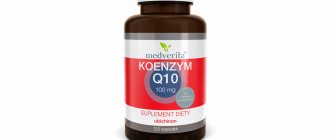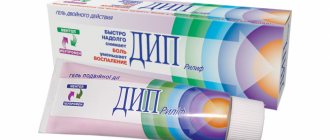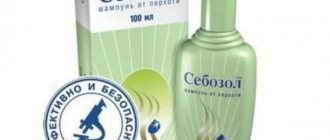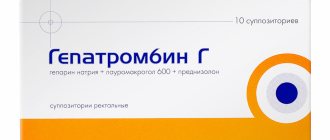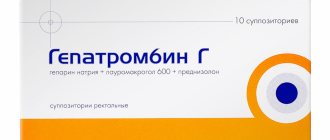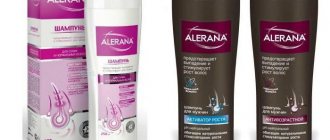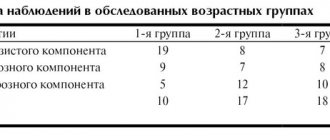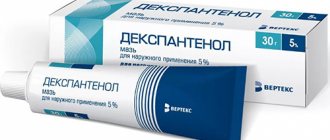Nizoral is a shampoo with a pronounced antifungal effect . It has proven itself in the fight against dandruff (seborrhea), rarely causes allergies, and has virtually no contraindications. However, Nizoral is a highly advertised drug and therefore expensive. Popular online pharmacies offer to purchase a 60 ml bottle for 700-900 rubles. To treat scalp with thick hair, this amount is sometimes not enough. You have to buy a larger bottle (its cost is 1000-1300 rubles).
But there is a solution to the problem. Today in pharmacies you can buy inexpensive shampoos that are analogues of Nizoral and are not inferior to it in effectiveness . And if there is no difference, why pay more? We invite you to listen to this popular slogan and get acquainted with more budget “versions” of the famous remedy.
Cheaper, but no less effective analogues of Nizoral shampoo include:
- "Keto Plus";
- "Orazol";
- "Sebozol";
- "Dermazol";
- "Mycozoral";
- "Ketoconazole";
- "Dandruff";
- "Kenazol";
- "Ebercept";
- "Friderm."
pharmachologic effect
Manufacturer: JANSSEN PHARMACEUTICS N.V. (Belgium)
Release form: shampoo, tablets, cream for external use
Active ingredient: ketoconazole
Analogues: Keto plus, Sebazol, Sulsena
Nizoral belongs to the group of antifungal drugs that are active against dermatophytes, yeasts, dimorphic fungi and zoumicetes. The active substance of the drug inhibits biochemical synthesis in the cellular structures of fungi, which leads to their destruction.
Cream substitutes
To treat pathologies caused by yeast fungi, Nirozal cream is used. Such diseases include lichen, inguinal athlete's foot, and ringworm. 1 g of cream contains 20 mg of ketoconazole and other additional substances. There are many cheaper analogues that allow effective therapy while saving material resources.
Candide
The active substance of this cream is clotrimazole, which suppresses the synthesis of ergostyrene, actively destroys dermatophytes, molds and yeasts, and lichen pathogens. This substance should be carefully applied to the affected areas 2-3 times a day for a month. Before treating your feet, be sure to wash your feet with soap and warm water and then wipe them dry with a towel. Fungal diseases should be treated for about three weeks. Vaginal cream is inserted 5 g deep into the vagina once a day for three days.
As a result of using the drug, allergic reactions and headaches may occur. In addition, treatment with vaginal cream in rare cases can cause increased urination and vaginal discharge.
It is not recommended to use Candide during pregnancy in the 2nd-3rd trimester, in case of individual intolerance to the components of the drug.
In addition, the use of the cream by patients with liver diseases requires constant monitoring of the physiological state of this internal organ.
Exoderil
This cream consists of the active substance naftifine hydrochloride at a concentration of 10 mg per 1 g and various auxiliary components. One tube contains 15 or 30 g of substance. This drug has a fungicidal and antifungal effect. Naftifine is a synthetic antimycotin, so exoderil is active against mold, yeast, and dermatophytes. In addition, the drug perfectly relieves itching and inflammation. Thus, the medicine is characterized by an antibacterial, anti-inflammatory effect against the background of antifungal activity.
The active component of the ointment penetrates the skin, creating a stable concentration that can effectively counteract pathogenic fungi. Indications for the use of Exoderil are fungal pathologies of the skin and nails, pityriasis versicolor, cutaneous candidiasis, and dermatomycosis.
When treating, it is necessary to treat neighboring areas, and not just the affected area. The drug is applied only to dry, clean skin. The course of treatment should be determined by a doctor. During pregnancy and lactation, the ointment should be used carefully. In case of open wounds and other skin lesions, as well as individual intolerance to certain components of the drug, it is better to avoid using the cream.
Exoderil
Mifungar
This antifungal agent contains the active substance oxiconazole and additional components in the form of alcohols, acids, and paraffin. The active component indirectly inhibits the synthesis of ergostyrene. Oxiconazole effectively suppresses dimorphic, fibrous fungi, staphylococci, streptococci.
Mifungar is practically not absorbed into the blood, but accumulates in the stratum corneum of the epidermis. Within 5 days, the active substance is excreted by the kidneys. The medicine is prescribed for fungal and bacterial infections of the external genitalia, dermatomycosis. If you are pregnant, breastfeeding or have an individual sensitivity to the components of the drug, it is better not to use the medicine.
Mifungar is a relatively safe drug, therefore the most common adverse reactions to the medication are burning, itching, and in more rare cases, skin rash and erythema may appear. It is better to take the medicine only after consulting a doctor.
Sebozol
This ointment is a complete analogue of Nizoral, since its main active ingredient is 2% ketoconazole. Sebozol is a white substance with a yellowish tint. This antifungal agent suppresses dimorphic, yeast fungi, dermatophytes due to inhibition (suppression) of ergostyrene. Therefore, the medicine is prescribed for various fungal infections, inguinal, athlete's carpals, cutaneous candidiasis, seborrheic dermatitis, folliculitis, pityriasis dermatitis.
This product is safe; sometimes side effects may occur in the form of burning and allergic reactions. Treatment of various diseases differs in duration and dosage, which are determined solely by the doctor. This medicine can be purchased in pharmacies without a prescription.
Ecodax
This cream is a broad-spectrum antifungal drug for external use, the active ingredient of which is econazole. It is prescribed for hair damage caused by mold and yeast fungi, as well as in cases of dermatomycosis, erythrasma, lichen, fungal balanitis, thrush, colpitis, and various mycoses. The medicine has a bactericidal and fungicidal effect due to the suppression of ergosterol synthesis. As a result of using the drug, most pathogenic fungi are destroyed in a short time. Ecodax is a relatively safe drug, so side effects are limited only to allergic reactions.
Uroderm
It is an ointment for external use with a keratolytic effect. The drug softens and moisturizes the skin, increases its elasticity. Uroderm consists of the active substance urea urea and additional components in the form of water, alcohol, glycerin, aminoacetic acid.
Prescribed for the complex treatment of skin pathologies associated with severe keratinization of the epidermis. Indications for use of the drug are the following diseases:
- hyperkeratotic types of fungal diseases;
- keratoderma;
- chronic eczema;
- follicular keratosis;
- ichthyosioform dermatoses;
- psoriasis.
Psoriasis
In addition, the cream is used to soften the skin with subsequent removal of horny layers.
Contraindication for use is hypersensitivity to the components of the drug. In case of diseases of the kidneys, liver, heart and blood vessels, increased caution must be exercised. During pregnancy and lactation, the ointment can be used only after consultation with a doctor.
Triderm
This cream for external use has a complex composition. Its active components are betamethasone dipropionate, clotrimazole, gentomycin sulfate. In addition, it contains additional components. Triderm is an antifungal and antibacterial agent. In addition, the medicine effectively relieves inflammation. This complex drug combines antipruritic, antiallergic effect with antifungal activity and antibacterial effect. The medicine is prescribed for complex forms of dermatitis, neurodermatitis, and dermatomycosis.
Contraindications include chicken pox, herpes, skin tuberculosis, syphilis. It is not recommended to use the cream on the skin of small children under 2 years old, with increased individual sensitivity to the components of the drug. The drug should be used with caution during pregnancy. Negative reactions may occur: itching, burning sensation, erythema, pigmentation disorders, peeling, skin atrophy.
Lupus
See also:
Instructions for use of the drug Revaitl Garlic pearls and its analogues
Indications for use of Nizoral
Nizoral is prescribed for the following diseases:
- seborrheic dermatitis;
- dandruff caused by various reasons;
- athlete's foot and hands;
- dermatomycosis of the skin;
- pityriasis versicolor;
- pityriasis versicolor;
- candidiasis of various localizations;
Nizoral, depending on the affected area, is used as an external remedy (cream, shampoo) for skin diseases or for internal use (tablets) when candidiasis is localized in the pharynx, vagina, or oral cavity.
Reviews
On the Internet there are positive reviews of Nizoral shampoo from both specialists and patients.
Cosmetologists and trichologists note effectiveness for seborrheic dermatitis already at the beginning of use, including in adolescent patients.
Patients like the absence of a pungent odor, noticeable results from the third use - itching is eliminated, the scalp is healthier, and oily scales disappear. Users also note the economical consumption of the product and the absence of dry scalp after use. The disadvantages include the high price, but analogues with a lower price do not always give the desired effect.
Nizoral - instructions for use
According to the instructions for use of Nizoral, the drug is prescribed as:
- Creams - for the treatment of skin candidiasis, athlete's foot, pityriasis versicolor, the product is applied to the affected area of the skin once a day, including a portion of healthy skin. According to indications, the frequency of application of the medicine can be increased to 2 times a day for a duration of 3 weeks to 1.5 months.
- Shampoo - for the treatment of dandruff and seborrheic dermatitis, the product is applied to the affected areas for 4-5 minutes 2 times a week, followed by rinsing with warm water. The course of therapy continues for 2–4 weeks. Treatment for pityriasis versicolor is carried out once a day and lasts for 5 days.
- Tablets - for the treatment of infections of the skin, scalp, mucous membranes or infectious processes of a systemic nature, provoked by yeast fungi, dermatophytes. The medication is prescribed 1 tablet per day. The duration of therapy can range from 1 week to 6 months, depending on the type and location of the pathology.
The treatment process must be continuous and with a laboratory result indicating the absence of the pathogen.
How to use correctly
For Nizoral to work, it must be used correctly. To do this, apply shampoo to hair moistened with water, lightly rub into the skin and leave for at least five minutes. Then the composition is washed off under running water.
Treatment options:
- for manifestations of pityriasis versicolor - apply daily for five days;
- for manifestations of dandruff or seborrheic dermatitis - twice every seven days for two to four weeks.
Prophylactic use involves:
- use once three days in a row in a course on the eve of the start of the summer season to prevent pityriasis versicolor;
- apply once every 7 or 14 days to prevent relapse of seborrheic dermatitis and dandruff.
During use, you should be careful not to get the shampoo on your eyes, otherwise severe eye irritation and excessive tearing will occur. If trouble does occur, rinse your eyes with plenty of water.
If, after washing your hair with Nizoral, your hair feels stiff and dry, then you can apply a conditioner along the length and ends. When undergoing a course of treatment, it is not recommended to apply cosmetics to the scalp.
Analogues of Nizoral shampoo
The pharmaceutical market is largely represented by foreign and Russian analogues of Nizoral shampoo for the treatment of diseases caused by dermatophytes, fungi, and yeasts. They have equivalent indications and treatment results. They are sold in the pharmacy chain in the form of:
- synonyms;
- combination drugs;
- generics.
The variety of substitutes for Nizoral shampoo allows you to select the appropriate analogue for your skin type in each individual case, taking into account the spread of the pathological process and the degree of its activity.
Table of analogues of Nizoral shampoo with price and country of origin
| Analogue | Cost in rubles | Manufacturer country |
| Nizoral | 520-580 | Belgium |
| Keto plus | 540-560 | India |
| Sebozol | 150-200 | Russia |
| Sulsena | 275-370 | Russia |
| Ketoconazole | 295-320 | Russia |
| Mycozoral | 250-280 | Poland |
The price of Nizoral shampoo analogues varies widely. You can buy medicinal anti-dandruff shampoo at a cheap price with a good therapeutic effect from a Russian manufacturer.
Nizoral shampoo or Keto plus - which is better?
Manufacturer: GLENMARK PHARMACEUTICAL LTD (India)
Release form: shampoo
Active ingredient: ketoconazole, zinc pyrithione
Both shampoos have the same indications and are used to eliminate dandruff, seborrheic dermatitis or pityriasis versicolor. According to patient reviews, this analogue of Nizoral will be the best, since Keto Plus shampoo has an additional active ingredient in the form of zinc.
The shampoo quickly eliminates itching and flaking of the skin by slowing down and stopping the growth of fungus, and also normalizes the production of sebaceous secretions.
Orazol
This product fights fungi such as Pityrosporum. It is an excellent analogue of Nizoral, but finding Orazol in pharmacies in our country is sometimes difficult. The main substance here is also ketoconazole (1 ml contains 20 mg of the active ingredient). In addition, the composition includes flavorings, purified water and chemical compounds standard for such medicinal formulations.
Reference! Orazol is available in plastic containers of 50 ml and 150 ml. It is effective for all types of dandruff and lichen. But unlike Nizoral, treatment can be longer. To eliminate seborrhea, it is used for 30-40 days, and for deprivation - a week.
Orazole is produced in Palestine by Pharmacare Int.; there are no exact data on its cost. The price is determined by the place of purchase.
Nizoral or Sulsena - which is better?
Manufacturer: MIRROLA (Russia)
Release form: shampoo
Active ingredient: selenium disulfide
Nizoral and its analog Sulsena have the same indications. But the best treatment for dandruff caused by a fungus is Nizoral, since its active substance ketoconazole acts directly on the pathogen, inhibiting it.
Sulsen's analogue is more suitable as a prophylactic agent that exhibits antifungal properties, although it does not contain components that directly affect the fungus.
Mycozoral
Manufacturer: MEDANA PHARMA JSC (Poland)
Release form: medicinal shampoo
Active ingredient: ketoconazole
Mycozoral in the form of 2% shampoo is an effective antifungal agent that has an inhibitory effect on staphylococci and streptococci. This active ingredient analogue of Nizoral is applied selectively only to problem areas of the scalp for 4–5 minutes, followed by rinsing off the shampoo with warm water.
The presence of the active substance in the detergent ensures rapid relief of pathological symptoms (itching, flaking) and restoration of the affected areas of the scalp.
What else can you use to replace Nizoral shampoo, what detergents are effective against fungus? You can supplement the list of medications with the following drugs:
- Orazol;
- Dermazol;
- Dandruffed;
- Kanazol;
- Friderm;
- Ebercept.
A large selection of medicinal products for external use allows patients to purchase analogues of Nizoral shampoo cheaper, but with a good antifungal effect.
Popular analogues and substitutes for shampoo
Thanks to advertising and proven medicinal properties, the drug Nizoral in the form of shampoo has gained wide popularity. To achieve the desired therapeutic effect, this product should be used in strict accordance with the instructions. The shampoo is applied to the scalp, and after 4-5 minutes it is thoroughly washed off with warm water.
Depending on the type of disease, the duration and frequency of use of the composition differs. For example, for the treatment of pityriasis versicolor, shampoo is used for five days, and for dandruff and seborrheic dermatitis, you should wash your hair twice a week for a month. Prevention of these diseases takes two weeks. To prevent lichen, it is recommended to use Nizoral for three days. There are a number of analogues of Nizoral shampoo that are cheaper.
Nizoral's analogs
Dermazol
The drug is available in the form of a pink shampoo with a characteristic odor. This product is classified as a topical antifungal agent. Its active ingredient is ketoconazole, which is contained in a concentration of 20 mg per 1 ml. In addition, it contains additional components characteristic of such shampoos.
Dermazole is a derivative of imidazoledioxolane, characterized by a pronounced antifungal effect and activity against dermatophytes. This drug effectively blocks the synthesis of fungal ergosterols. Thus, the pharmacological properties of this drug lie in the ability to damage fungal membranes at the cellular level. If you use 2% shampoo for a long time, the active component may accumulate inside the keratin of the hair.
The drug is used for damage to the scalp and hair by pityriasis versicolor, dandruff, and cathorrheic dermatitis. Contraindications to the use of shampoo is the individual sensitivity of the body to its components. In addition, when using this product, you need to ensure that it does not get into your eyes. People with kidney pathologies and adrenal dysfunction should use the drug with extreme caution.
During pregnancy and lactation, the use of the drug is not contraindicated, since no data on risk factors have been found.
The instructions for using Dermazol for preventive and therapeutic purposes almost completely coincide with the rules for using Nizoral. Due to the fact that the shampoo is intended exclusively for external use, there is practically no absorption into the bloodstream. For this reason, practically no cases of overdose have been identified. Possible side effects include eye irritation, itching, erythema, and rash at the application site. In addition, angioedema, dryness and flaking of the skin, urticaria, changes in hair structure, contact dermatitis, folliculitis, and impaired taste sensitivity may appear.
Mycozoral
Another complete analogue of Nizoral hair product in terms of the main active substance is Mycozoral. This shampoo contains additional substances such as purified water, propylene glycol, sodium metabisulfite, hydrochloric acid, macrogolglycerol cocoate, sodium laureth sulfate and others. These components are safe for the human body. In addition, such a base creates a favorable environment for the activation of ketoconazole.
This drug is an antifungal agent. Mycozoral is characterized by an active effect in terms of suppressing dermatophytes, streptococci, staphylococci, and dimorphic fungi. The shampoo significantly reduces itching and flaking of the upper skin in the scalp area. Such symptoms are typical of seborrheic dermatitis, dandruff and pityriasis versicolor.
Since the drug is practically not absorbed into the blood when used topically, there are practically no contraindications during pregnancy and breastfeeding. On the other hand, it is better to exercise caution in such cases. The main limitation is increased sensitivity to the ingredients of the drug on an individual basis. In addition, if the skin is damaged, the product cannot be used.
Side effects from using shampoo include the following:
- change in hair color;
- burning and itching of the scalp;
- peeling;
- redness of certain areas of the skin;
- hair loss, change in hair oiliness.
This product should be used in the same way as Nizoral, taking the same precautions. Unlike the latter drug, Mycozoral is available without a prescription. On the other hand, it is better to use it after consulting a trichologist.
Dandruff
This broad-spectrum antifungal agent is active against streptococci and staphylococci and inhibits the synthesis of fungal ergosterol. In addition, Perhotal shampoo is characterized by activity against dimorphic yeast fungi and dermatophytes. This product, like Nizoral, acts on the same pathologies, since both 2% shampoos have the same active ingredient - ketoconazole. Perhotal is also available in the form of a 1% solution.
The drug is used in the same way as Nizoral. For the treatment of mold mycoses, this shampoo is used for five days. In cases of seborrheic dermatitis, the product is used twice a week for a month. When treating pityriasis versicolor, shampoo is applied to painful areas for 3-5 minutes and then washed off. At the same time, it is advisable to also capture nearby areas.
Diseases of the scalp
Among the side effects, the most common are allergic reactions in the form of urticaria, rash, irritation, itching and burning of the skin; change in fat content, hair loss. This remedy is characterized by high safety, so there are practically no strict contraindications for its use, except for individual sensitivity. Shampoo should be used with extreme caution by people with kidney failure, damaged skin, and pregnant women. The cost of Perhotala shampoo varies from 297 to 370 rubles. This is about 3 times cheaper than the price of Nizoral.
Sulsena
This shampoo comes in a 150 ml plastic bottle. The solution has a bright orange color and a neutral pH, so it does not disturb the natural level of moisture of the head and hair. The active component of Sulsena is selenium sulfite, which, even after washing off the shampoo, remains on the surface of the head and penetrates into the epidermis. This substance effectively fights the cause of dandruff – yeast fungus. The drug is used both for the treatment and prevention of fungal pathologies.
Using Sulsena allows you to protect your hair from the reappearance of dandruff for a long time and solve the following problems:
- activate cellular restoration processes;
- inhibit the proliferation of yeast fungi;
- restore the activity of the sebaceous glands;
- optimize the protective functions of the scalp.
As practice shows, after just a week of active use, problems such as itching, flaking of the skin, and dandruff can be completely eliminated. Despite its effectiveness, this shampoo is not suitable for everyone. This product is safe, but it is not recommended for use in cases of hypersensitivity to its individual components, pregnancy and lactation. In addition, when using shampoo, you need to ensure that its foam does not get into your eyes. In such cases, the eyes must be rinsed thoroughly with plenty of water.
See also:
TOP 6 most inexpensive analogues and substitutes for the drug Baneocin®
Analogues of Nizoral tablets
In some cases, it is necessary to supplement the treatment of pathologies caused by fungi with the internal use of Nizoral tablets. If for some reason (contraindications) they cannot be taken, they can be replaced with analogues that provide an equivalent therapeutic effect. The most common analogues of Nizoral tablets in composition are medications based on:
- Fluconazole is Fucis, Diaflu, Diflazon, Mikamax, which are used orally for damage to the mucous membranes (candidiasis of the throat, genitals, candidal balanitis) and extensive damage to the skin.
- Itraconazole is Itracon, Izol, Funit, which are active against yeast fungi, dermatophytes and are used to treat generalized forms of candidiasis and systemic mycoses.
- Terbinafina is Lamikon, Atifan, Lamifen, Terbizil, which have a wide spectrum of antifungal action and are used for the treatment of dermatomycosis, mycoses of the scalp, and candidiasis.
Among these medications, there are analogues of Nizoral tablets that are cheaper, but highly effective. Is it still possible to supplement or replace Nizoral tablets with something? For common pathological processes, combination treatment is used to enhance the effect, combining the use of tablets and external agents.
Release forms and structural analogues
This drug is manufactured in several dosage forms for external and internal use. In cases of fungal infection of the mucous membrane of the gastrointestinal tract, genital organs, and soft tissues, round tablets with beveled edges are used. On one of their sides there is the inscription “Janssen”, on the other - “K-200”. One blister contains 10 tablets, and a cardboard box contains from 1 to 3 blisters. Because of their versatility, tablets are prescribed not only for the treatment, but also for the prevention of various mycoses and seborrheic dermatitis. This dosage form is most suitable for patients with good immunity. In addition, tablets are recommended for patients who have undergone chemical treatment.
For external use, a transparent solution of viscous consistency is used, packaged in 15 g bottles, powdered powder in a plastic bottle (30 g). In addition, 2% white cream, which is offered in an aluminum tube (15 g), is widely used. The most popular form of the drug is Nizoral 2% shampoo, which is bottled in a plastic bottle with a capacity of 25, 60, 125 ml. In addition, the drug is available in the form of vaginal suppositories.
If you compare the prices of a drug with the original name with its analogues, then it is more profitable and cheaper for a person to purchase substitutes that completely match the composition. Almost every dosage form can be replaced without loss of properties by choosing from the appropriate substitutes for Nizoral.
Nizoral
The following medications are suitable:
- tablets Mycozoral, Ketoconazole, Dermazol;
- shampoos Ketodin, Perhotal, Keto Plus, Ebersept, Kenazol, Sebazol, Orazol, Mycozoral;
- creams Mykoket, Onabet, Ketodin, Ketozoral, Mycozoral, Dermazol.
Many drugs in their pharmacological properties fully correspond to the original, but their cost is much lower. On the other hand, to avoid side effects, they must be used with caution.
See also:
List of the cheapest substitutes for Zalain®: TOP 6 analogues of the drug
Analogues of Nizoral cream
In clinical dermatology, analogues of Nizoral ointment are also used, prescribed for fungal skin lesions, which include:
- Mycozoral;
- Dermazol;
- Mycozolon;
- Lamisil;
- Zalain;
- Candide;
- Ecodax.
Patients for the treatment of fungal skin diseases can choose cheaper analogues of Nizoral cream. Their budget cost makes it possible to purchase and combine products for long-term treatment for fungal infections of the skin.
Properly selected analogues of Nizoral and their use in treatment make it possible to quickly cope with the damaging effects of the fungus.
Use during pregnancy, breastfeeding and childhood
When applied to the hair, the composition is not absorbed through the top layer of the skin, and the likelihood of entering the circulatory system is low. However, there have been no serious studies on the effects of ketoconazole on the health of pregnant women and the fetus, as well as breastfeeding women and infants. Therefore, there is no information about the risks of using shampoo in these categories of patients.
They are supposed to be minimal. If there is an urgent need to use Nizoral, you should consult your doctor to weigh the risk to the fetus and the benefit to the woman.
Shampoo is approved for use by children from 12 years of age; for ages below this limit, the safety of the product has not been established.
